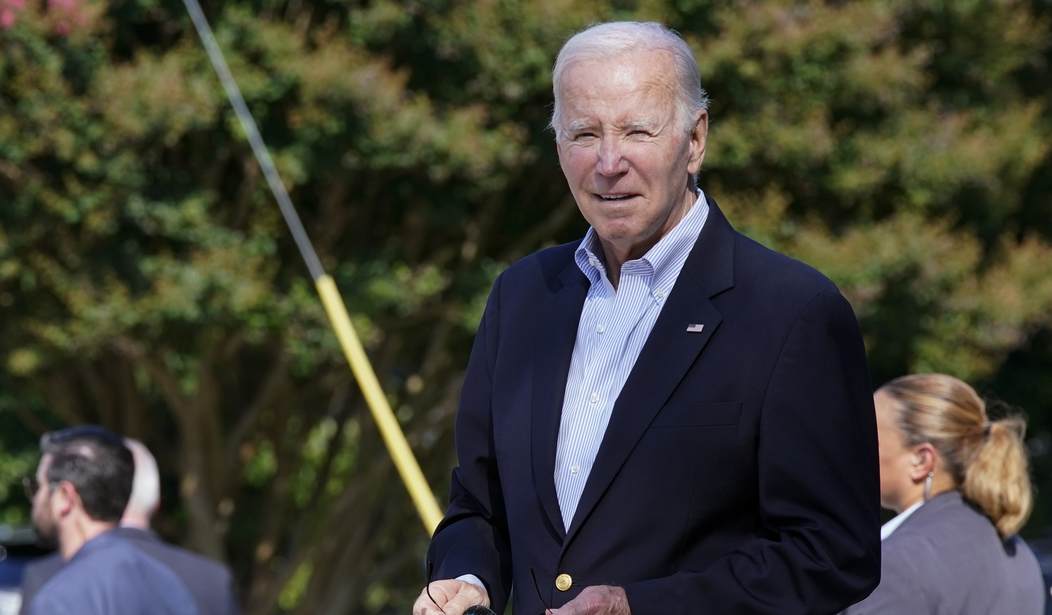Ask anyone who follows college football to name the man who has coached Alabama for the past 16 years and they will surely give you a correct answer.
His name is Nick Saban.
But that might not be the answer you would get if you asked President Joe Biden.
At a July 29 campaign event in Freeport, Maine, Biden took a swipe at Republican Sen. Tommy Tuberville of Alabama. Before he became a senator, Tuberville had served as head football coach at Mississippi, Auburn, Texas Tech and Cincinnati.
Auburn, which is located in Alabama, is a football rival to the University of Alabama.
"Well -- and the senator from Alabama, he knew how to coach Alabama, I think," said Biden, according to the White House transcript of his Freeport speech. "Well, he sure as hell doesn't know what he's talking about now."
Specifically, Biden was criticizing Tuberville for speaking positively about $1.4 billion in federal spending aimed at expanding internet access in Alabama even though Tuberville himself had voted against the 1,039-page law -- the Infrastructure Investment and Jobs Act -- from which the internet funding will come.
According to the Congressional Budget Office, that act will also add $256 billion to federal deficits over 10 years.
When Biden said of Tuberville that "he knew how to coach Alabama," did he really mean to say that Tuberville knew how to coach at a college located in Alabama?
It is impossible to read Biden's mind, but it is not impossible to watch the video on CSPAN -- or read the White House transcript -- of a speech Biden gave on July 20 in Philadelphia.
In that speech, Biden criticized Tuberville for holding up military promotions by preventing the Senate from approving them through unanimous consent.
Recommended
"In February," explains the senator's website, "Senator Tuberville placed a 'hold' on all (U.S. Department of Defense) general and flag officer nominations over the department's new policy of funding travel and additional paid time off for service members and their dependents seeking an elective abortion. The hold simply requires military nominations and promotions to be processed through regular order rather than being approved by unanimous consent in large batches."
In response to this, as recorded in a CSPAN video, the president said: "And then there's the distinguished senator from Alabama, a former football coach of a winning football team at University of Alabama, Senator Tuberville. You know, the one who's blocking the nominations of America's finest military leaders, jeopardizing our national security over domestic social issues."
In the same speech in Freeport, Maine, in which Biden said Tuberville "knew how to coach Alabama," the president also claimed that he had cut the federal "debt."
"So, folks," Biden said, according to the White House transcript, "look, imagine -- and, by the way, all the stuff we did in the economy, all these programs that we've put forward -- in the process, I cut the federal debt by $1.7 trillion in two years. More than any other president of the United States has come close."
This is not the only time Biden has claimed to have cut the "debt."
At a June 16 campaign event in Greenwich, Connecticut, according to the White House transcript, Biden said, "My first two years, I reduced the de- -- my administration reduced the -- the debt by 1- -- $1.7 trillion -- more than any president in American history -- in the first two years."
At a June 20 campaign event in Kentfield, California, according to the White House transcript, Biden said, "I was able in the first two years to cut the federal debt by 1 trillion 700 billion dollars."
At a June 27 campaign event in Chevy Chase, Maryland, according to the White House transcript, Biden said: "We've cut the debt $1.7 trillion. More than any president ever has."
Has Biden cut the federal debt? No.
When Biden was inaugurated on Jan. 20, 2021, according to the U.S. Treasury Department, the federal debt was $27,751,896,236,414.77. As of the end of July, it was $32,608,585,072,666.14.
In the two and a half years Biden has been president, the federal debt has not been cut by $1.7 trillion; it has increased by more than $4.8 trillion ($4,856,688,836,251.37).
Biden has sometimes correctly claimed that the "deficit" -- rather than the debt -- has declined in the past two years. "My first two years as president, I've cut the deficit by more than any president has in American history: $1.7 trillion cut from the deficit," Biden said at a June 17 rally in Philadelphia, according to the White House transcript.
"And so we also agree we need to reduce the deficit," Biden said before meeting with House Speaker Kevin McCarthy on May 22. "And I might add, in my first two years as President, I reduced it by $1.7 trillion."
Under Biden, the deficit has declined but has not returned to where it was before the COVID pandemic. In fiscal 2019, it was $984,388,000,000. In fiscal 2020, when President Donald Trump was in office and the pandemic hit, it jumped to $3,131,917,000,000. In fiscal 2022, it was $1,375,486,000,000 -- or $391,098,000,000 more than it was in the year before the pandemic.
The Treasury Department explains the difference between the debt and the deficit -- and the relationship between them -- on its website.
"In a given fiscal year (FY), when spending ... exceeds revenue ... a budget deficit results," says the Treasury Department. "To pay for this deficit, the federal government borrows money by selling marketable securities such as Treasury bonds, bill, notes, floating rate notes, and Treasury inflation-protected securities (TIPS).
"The national debt," it says, "is the accumulation of this borrowing along with associated interest owed to the investors who purchased these securities. As the federal government experiences reoccurring deficits, which is common, the national debt grows."
As it has under Biden.

























Join the conversation as a VIP Member